
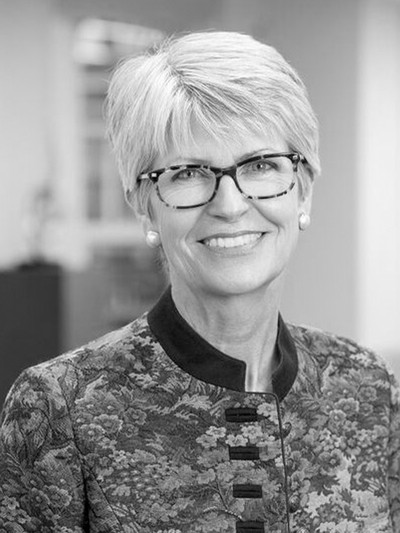
The Gold Edition Meets… Carol Kefford
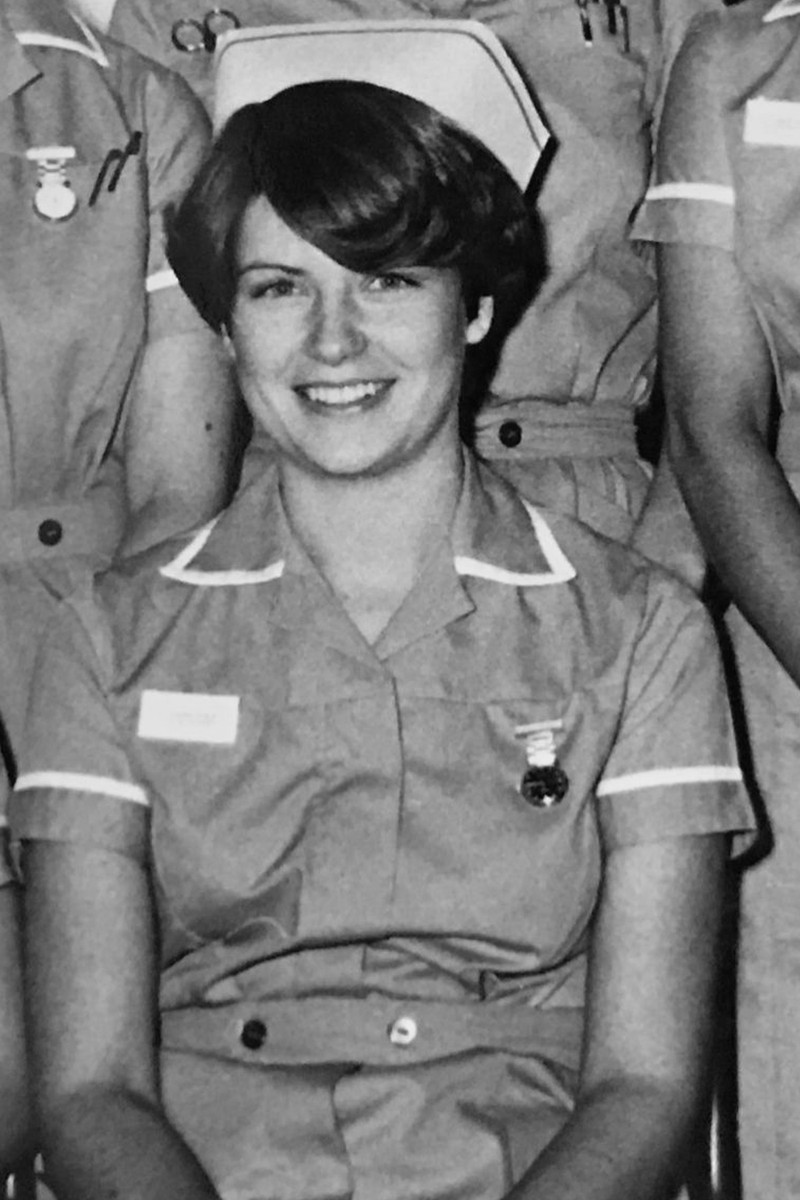
I don’t come from a medical family. When I was seven, I had a nasty appendix episode that saw me spend three weeks in Ormskirk District General Hospital and, although I was really poorly, I can still remember every minute. I loved it – and knew I wanted to be a nurse from that day forward. I never wavered. I remember how caring the nurses were on the ward, the kindness people showed me, how clever they all seemed and the various processes – dressings, stitches, drips changed – all fascinated me. It’s quite difficult to articulate but I just thought the hospital environment was great.
At 18, I decided to go and train in Oxford. I’d found a brochure in the careers library at school and that was that. Nurse training has changed quite a lot since then but, in those days, it wasn’t a degree course – there was a dedicated school of nursing attached to the training hospital, and the John Radcliffe group of hospitals in Oxford were at the top of their game. It started with six weeks of traditional school followed by 12 weeks on a ward, then back into school for a fortnight followed by three more months on the ward. And so it went on – part theory, part hands-on.
Student nurses are always well looked after. There’s a hierarchy between the first, second- and third-year nurses and the idea is you pay that duty of care forward to the up-and-coming juniors. The first week on a new ward was always an anxious time but we all became very good at finding our feet quickly. For me it was always very rewarding learning about something in theory and then getting to tackle it in practice. I’m a practical person, so it was great to be able to bring things to life.
After my training, I worked for the NHS for a couple of years in Manchester and Oxford. I later joined the army and did five years as a nursing officer – the army equivalent of a ward sister. I worked for hospitals in Aldershot, Hong Kong and Nepal. I also did a bit of non-nursing work training young recruits. Interestingly, after this, I joined Marks & Spencer on their personnel management training programme for eight months as I thought I might be interested in the commercial world. However, it wasn’t for me and I soon returned to what I knew best, which was the army and nursing.
The army sent me back to Nepal after they’d had an earthquake. After that I spent the best part of 20 very happy years in a variety of roles – I ran recruitment, officer training and I was deputy matron of a hospital. The reason I left was my marriage. I’d been married for seven years at that point and was a bit tired of moving around and commuting, and not living with my husband, who had already left the army. Then, a job came up with Nuffield Health – a big independent healthcare provider – as matron of their hospital in Oxford. They were busy building a new hospital, too, so that really appealed and I stayed with them for about five years.
After serving as a hospital director in Bristol, I left to go sailing. Lots of people ask me about this side passion, but I admit I only really got into it because my husband is such a keen sailor. That said, I love what sailing has afforded me in terms of travel and meeting new people. We sailed across the Atlantic and the Pacific, covering around 44,000 miles, and I genuinely thought I would never return to nursing. I wasn’t sure people would want me; that they might think I’d turned my back on it. But six months into this adventure, I knew I couldn’t walk away from nursing. So I made sure I took on enough short-term work and roles to maintain my registration. Eventually, Nuffield Health got back in touch to tell me there’d been some changes and that the Chief Nurse role was vacant.
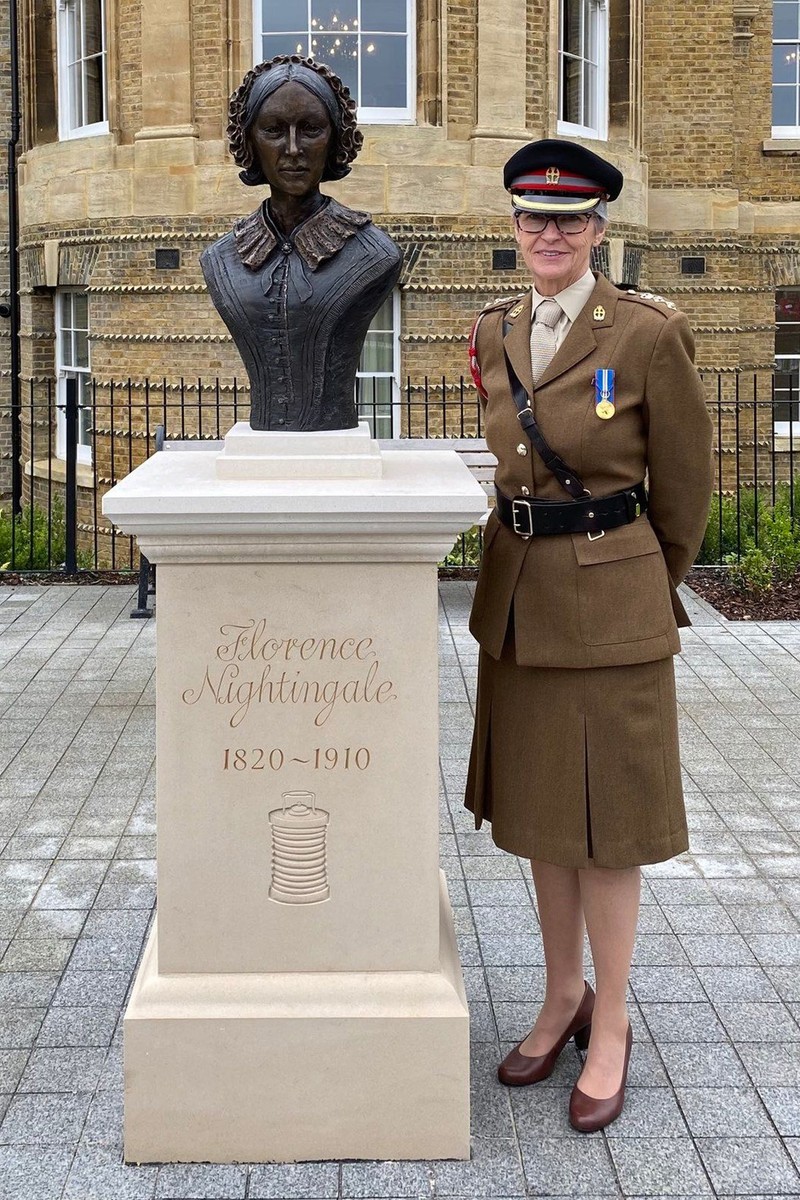
My initial reaction was, “Don’t be ridiculous.” I was in the middle of a coral reef in the Pacific and thought why on earth would I want to go home and do that? But I thought it through, they were prepared to wait, and I disembarked the boat after seven years of travelling as Chief Nurse.
It’s difficult to know what exactly it is about nursing I love. I suppose I enjoy the complexity of it. I like that it’s all about people – and I don’t mean just caring for patients, it’s about being part of a team, working together to do something good. I enjoy the challenge, the need for expert knowledge and collective experience. I like being able to make a difference – which sounds a bit arrogant to some, but it really is multi-faceted. It’s also technically fascinating on a pure biological level.
What makes a good nurse is quite an intangible thing. I’ve worked with and for many nurses who I’ve thought are amazing at what they do – but why they’re so good is hard to pinpoint. Often, they just have an aura about them. They’re incredibly kind, compassionate but that’s coupled with expertise and experience. They’re also organised, confident, capable and unafraid to use their voice. Nursing or healthcare in general is a team sport – it isn’t something you do as an individual.
I’ve been lucky enough to have some incredible mentors. One example is a staff nurse called Annie who I met when I was a second-year nurse. I used to watch how she spoke to patients, how she answered the phone, how she ran handover reports. She was just very special – always polite and she really knew what she was doing. She also treated me with the same respect as the consultants and I very much responded to that. In the army, Bridget was my lead instructor who then ended up as Chief Nursing Officer Army, so our paths were always crossing. She was very low-key but everyone had such respect for her. She also taught me that it’s okay not to have all the answers. As you become more senior, it’s typical to demand more and more of yourself, but she proved to me that it doesn’t have to be that way. She wasn’t afraid to say to someone more junior than her that she didn’t know what something meant and ask them to explain it to her. It worked wonders for their confidence.
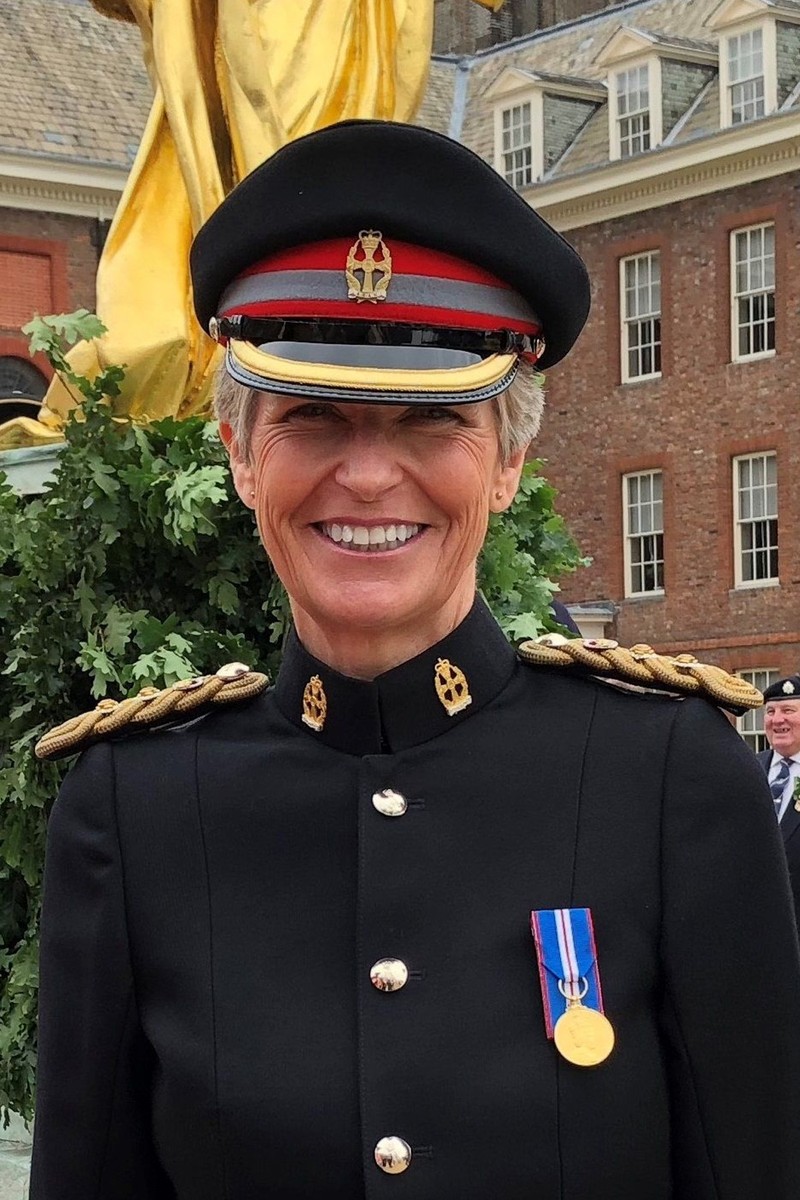
Lord Nigel Crisp has also had a huge influence on my career. The year before the pandemic, I had the good fortune to be a Florence Nightingale Foundation Senior Leadership Scholar, and you’re appointed a mentor as part of that. Lord Nigel Crisp, who used to be chief executive of the NHS and is now a crossbench peer, was mine. He had this incredible pan-perspective on healthcare and made me think very differently to the way I had before. He was always challenging me, which was a very positive thing. It was also very fortunate that I met him right before Covid-19 hit. He gave me a much bigger toolbox to work with once the pandemic was underway.
The pandemic is definitely my proudest achievement. We cared for half a million patients through Covid. Not all of them were suffering from Covid but the NHS was overwhelmed and we at the Nuffield were able to pitch in and take on urgent surgery NHS patients. We also converted some of our wellbeing spaces into chemotherapy treatment rooms. The human effort was amazing but the way I dealt with it was a lot of compartmentalisation and relying on those around me – no matter how junior. In fact, I found the younger ones could often see things I couldn’t. I love being part of a team; it really helps me have a sense of purpose and feel driven.
There’s been no difference in my experience between the NHS and the independent sector. Level of care has always been the number one priority across both sectors and, frankly, it was Covid that proved how interlinked the two systems really are. I was at Nuffield Health when the pandemic hit and was very impressed with how our colleagues and hospitals pivoted to provide care for people who could no longer go into NHS hospitals for treatment. Everyone thinks we’re competitors but the pandemic proved that, in the face of life or death, that isn’t true.
I was also a Colonel Commandant of the Queen Alexandra's Royal Army Nursing Corps during Covid. It meant I saw first-hand how the army, navy and air force deployed across the NHS and the country to run vaccination programmes and used all their expertise. It was also fascinating to see all the military nurses that were embedded at various hospitals – at Frimley Park for example – use their experience in war zones like Afghanistan or with crises like Ebola to guide people we could get through it.
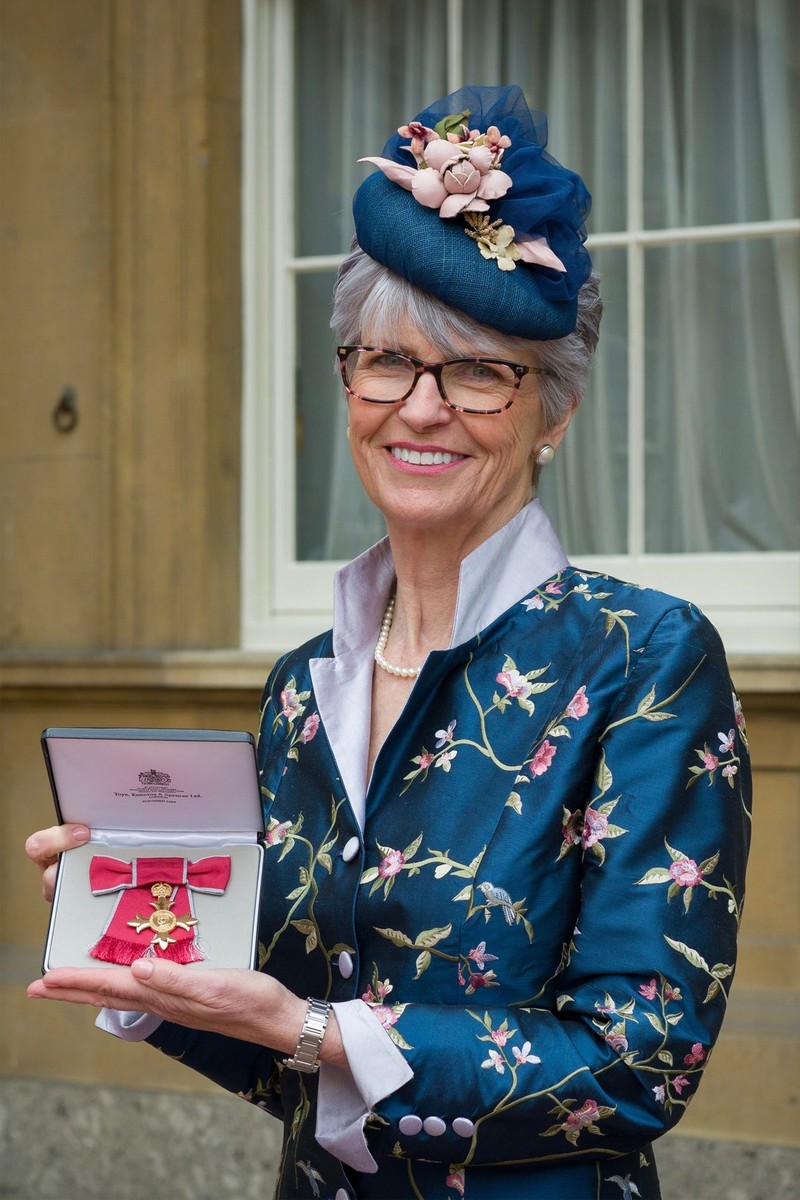
Colonel Commandant is a non-executive role at its heart. The various corps of the military all have colonel commandants embedded into their structure, most of whom have spent years in the army. However, the best colonels have experience in the army and in the outside healthcare world, too. Also, despite the rank, you’re not officially in the chain of command, so you don’t have to shy away from having difficult conversations about what could be done better. You have a direct route into the chief of the army staff – personally, I’ve never had to use it, but it’s there if I need it. Generally, the role means going on lots of hospital visits, going to events, chatting to junior officers and picking up on support and advice where it’s needed. It’s a five-year appointment ratified by the monarch, and now that it’s coming to a close, I can see how much I’ve got out of it.
A lot of my work as Colonel Commandant has involved working with the Duchess of Edinburgh. Of course, she’s mainly been known as the Countess of Wessex during my tenure, but things are now changing. I have to say, she’s wonderful – she is a very active Colonel-in-Chief and, as a representative Colonel Commandant, it’s often me who’s hosting when she comes to events or meetings. Everything she’s come to she’s properly involved with and she really knows her stuff.
Receiving my OBE was hugely emotional. I was contacted in advance to be told my name was being put forward to the prime minister and then the palace, and they were interested to know whether I would accept it if chosen. That happened in late November and they struggled to find me because it was Nuffield Health who had co-ordinated it all, and I’d moved on by then. So, I eventually had a call from the cabinet office telling me they had been trying to track me down. I just burst into tears when I realised why they were calling. But I was sworn to secrecy until a few days before, when I was allowed to let the press office at HCA know.
The day itself was very special. They’ve changed the routine slightly post-Covid, so now you have to congregate in various rooms at Buckingham Palace, with everyone congratulating you and telling you how exciting it is. You feel like you’re the only person this has ever happened to – even though they must do it two or three times a week. Then you’re lined up in order before you walk down a long gallery being passed from person to person. There’s no way you can get it wrong. You and your family walk into the room together. Your family are taken to one corner while you walk forward. Princess Anne presented my award and she asked me about my work at Nuffield Health, the pandemic and the NHS. She seemed really interested in what I had to say, which was lovely.
My next ambition is to take on more non-executive and voluntary roles. I’m not planning on working for ever, but I can’t see myself stopping completely. It’s more of a time to give back now, to be able to support and mentor others, particularly in leadership roles. I’d also love to sail again – I’m quite good at it now, and there’s still a lot of world left to see. I’m always looking for the next adventure.
Carol Kefford is currently Chief Nursing Executive for HCA Healthcare UK.
DISCLAIMER: We endeavour to always credit the correct original source of every image we use. If you think a credit may be incorrect, please contact us at info@sheerluxe.com.

